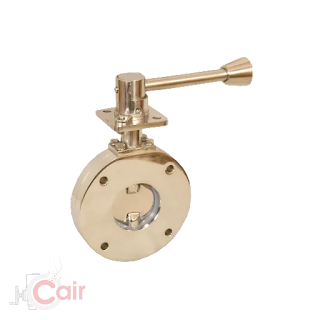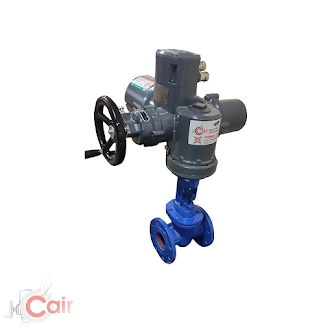Comparing UPVC Ball Valves to Other Materials: Pros and Cons
In the realm of fluid control systems, the choice between UPVC (Unplasticized Polyvinyl Chloride) ball valves and traditional metal valves is a critical consideration. This material showdown involves weighing the pros and cons of each, as they cater to distinct applications.
UPVC Ball Valves:
Lightweight and corrosion-resistant.
Cost-effective alternative to metal valves.
Excellent chemical resistance, making them ideal for corrosive environments.
Easy to install and maintain.
Well-suited for water and chemical applications.
Traditional Metal Valves:
Durable and robust construction for high-pressure applications.
Suitable for extreme temperature conditions.
Enhanced strength and longevity.
Widely used in industrial settings.
When deciding between UPVC ball valve and traditional metal valves, it's crucial to evaluate the specific requirements of the intended application. Consider factors like cost, chemical compatibility, and operational conditions to determine the most suitable choice.
Examining Performance: How UPVC Compares to Brass and Stainless Steel
In the realm of industrial valves, the choice between UPVC (unplasticized polyvinyl chloride), brass, and stainless steel is crucial for optimal performance. Understanding the distinct characteristics of each material is essential for informed decision-making.
Corrosion Resistance:
UPVC: Resistant to corrosion, ideal for water-based applications.
Brass: Prone to corrosion in certain environments.
Stainless Steel: Exceptional corrosion resistance, suitable for harsh conditions.
Durability:
UPVC: Lightweight but durable, especially in low-pressure systems.
Brass: Sturdy, suitable for moderate-pressure applications.
Stainless Steel: High durability, well-suited for high-pressure and corrosive environments.
Cost Efficiency:
UPVC: Economical option for standard applications.
Brass: Mid-range cost, balancing performance and budget.
Stainless Steel: Higher initial cost but offers long-term savings due to durability.
Considering these factors, the choice between UPVC, brass, and stainless steel depends on the specific requirements of your system. For reliable performance in water systems, a UPVC ball valve could be an optimal solution.
Corrosion Resistance: A Critical Analysis of UPVC vs. Other Valve Materials
Corrosion resistance is a pivotal factor in selecting valve materials for various industries. This analysis delves into the comparative performance of UPVC (Unplasticized Polyvinyl Chloride) against other materials, shedding light on key considerations.
UPVC Ball Valve Advantages:
Excellent corrosion resistance.
Immune to rust and degradation.
Longevity in harsh environments.
Comparative Assessment:
UPVC vs. metal valves.
Evaluation of chemical compatibility.
Resistance to corrosive elements.
Environmental Impact:
UPVC's eco-friendly profile.
Reduced maintenance needs.
Sustainable solution.
Application Insights:
UPVC ball valve suitability in diverse industries.
Enhanced performance in corrosive fluid handling.
This comprehensive review underscores UPVC's commendable corrosion-resistant properties, making the UPVC ball valve an optimal choice for industries prioritizing durability and environmental responsibility.
Cost Considerations: UPVC Ball Valves vs. Alternatives in Your Budget
When evaluating options for fluid control systems, understanding the cost considerations between UPVC ball valves and their alternatives is crucial. Here's a concise overview to help you make an informed decision:
Material Costs: UPVC ball valves are often cost-effective compared to alternatives such as metal valves, making them an attractive choice for budget-conscious projects.
Installation Expenses: The lightweight nature of UPVC valves simplifies installation, potentially reducing labor costs compared to heavier alternatives.
Maintenance Costs: UPVC's corrosion-resistant properties contribute to lower maintenance expenses over time, as they withstand harsh conditions without deteriorating.
Durability: While metal valves may have higher upfront costs, UPVC valves offer long-term durability and resistance to rust and corrosion, leading to potential savings in replacements or repairs.
Application Versatility: UPVC ball valves are suitable for various applications, providing a cost-effective solution for different industries.
When planning your fluid control system, consider the overall cost-effectiveness of UPVC ball valves, balancing initial expenses with long-term benefits for optimal budget allocation.
Weight Matters: Lighter UPVC vs. Heavier Metal Valves
When considering industrial valves, the choice between lighter UPVC (Unplasticized Polyvinyl Chloride) and heavier metal alternatives is crucial. The weight of a valve impacts various aspects of its installation, maintenance, and overall performance. Here's a brief overview:
Lighter UPVC Valves:
Easy Installation: UPVC valves are lightweight, simplifying the installation process.
Corrosion Resistance: UPVC is corrosion-resistant, making it suitable for diverse environments.
Lower Maintenance: Requires minimal maintenance due to its resistance to rust and corrosion.
Heavier Metal Valves:
Durability: Metal valves, being heavier, may offer increased durability in certain applications.
Higher Pressure Handling: Metal valves may be better suited for high-pressure environments.
Temperature Resistance: Metal valves often exhibit superior temperature resistance.
Choosing between UPVC and metal valves depends on specific application requirements. For applications prioritizing lightweight, corrosion resistance, and easy installation, a UPVC ball valve proves advantageous.
Temperature Tolerance: UPVC Ball Valves vs. High-Temperature Materials
In industrial applications, choosing the right materials for ball valves is crucial, especially when it comes to temperature tolerance. UPVC (unplasticized polyvinyl chloride) ball valves and high-temperature materials serve distinct purposes, each with its own advantages and limitations.
UPVC Ball Valves:
Ideal for low to moderate temperature applications.
Resistant to corrosion, chemical deterioration, and rust.
Cost-effective solution for standard industrial processes.
Suitable for water treatment plants, irrigation systems, and general fluid handling.
High-Temperature Materials:
Designed to withstand extreme heat and pressure conditions.
Commonly made from materials like stainless steel, brass, or alloys.
Suitable for industries involving steam, hot liquids, or harsh chemical processes.
Higher initial investment but offers durability under challenging conditions.
Considering your needs, the choice between UPVC ball valves and high-temperature materials depends on the specific requirements of your application. If your focus is on standard processes with moderate temperatures, the cost-effective and corrosion-resistant UPVC ball valve may be the optimal solution.



Comments
Post a Comment